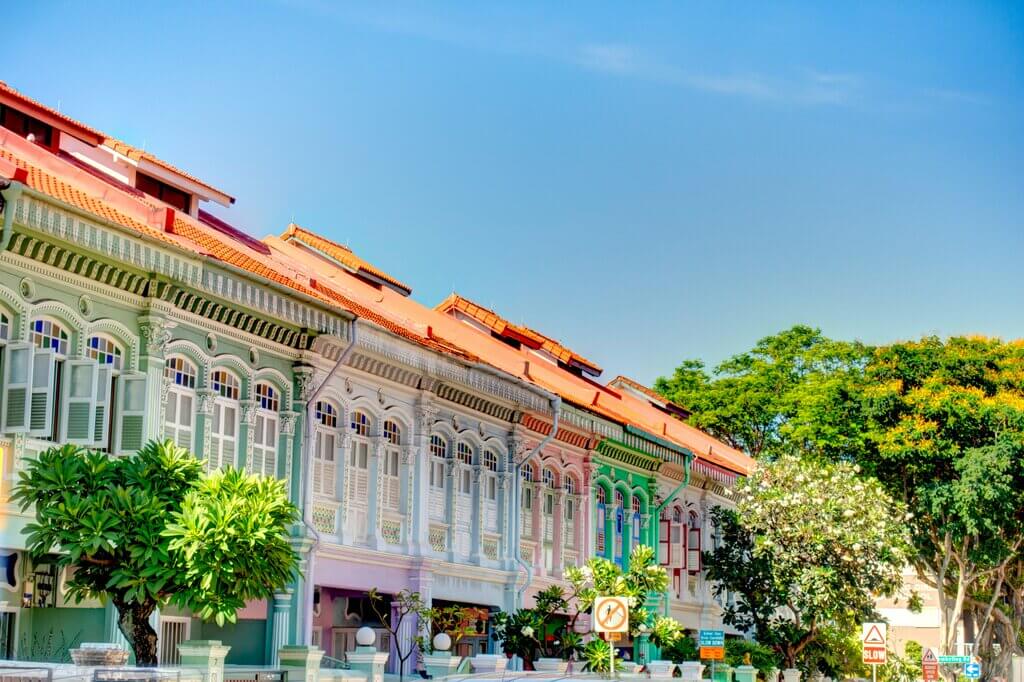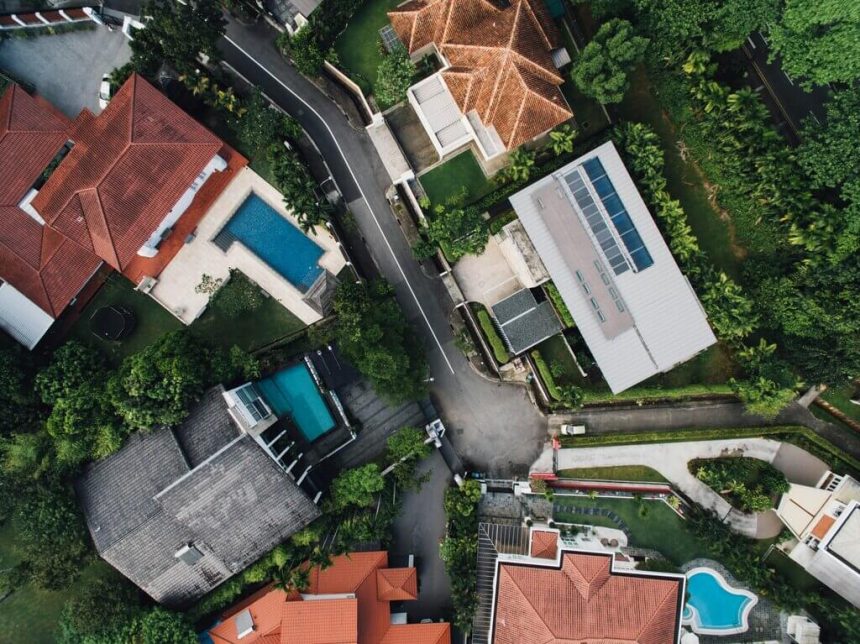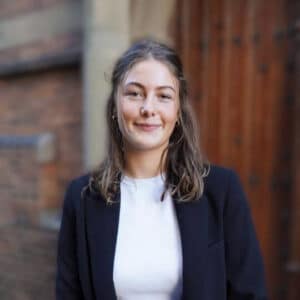Singapore offers a diverse range of real estate options for its residents, but also foreigners. A popular choice for foreigners is private properties, including a range of private and landed housing. In this article, we will guide you through everything you need to know about private property in Singapore as a foreigner, including the types of private property, the rules for buying property in Singapore, the differences, and the buying process.
What is private property in Singapore?
Private property in Singapore refers to residential properties owned by individuals or private entities. The government does not subsidize these properties. Generally, these properties are developed by developers or individual property owners.
Private properties often have different amenities like pools, gyms, and security services. These amenities depend on the type of property and the developer.
Types of private properties in Singapore
Singapore offers various different property types. Private properties in Singapore can be divided into two categories, private houses and landed houses:
- Private houses in Singapore: Refers to various residential properties that the government does not subsidize. This type of housing is owned and developed by private developers or individuals.
- Landed houses in Singapore: Landed houses refer to properties where the land and what’s constructed on the land belong to an owner.
Private housing in Singapore
There are three private housing options in Singapore:
- Executive condos (ECs): Executive condominiums are a particular type of private housing with both elements of public housing (HBD) and private condos. These condos are designed for Singaporean individuals or families who exceed the income limit for HDB.
- Private condos: Private condos in Singapore are similar to executive condos; however, private condos are privately owned from the start.
- Private apartments: Private apartments are similar to the condos in Singapore. ‘Apartments’ refer to properties within low-rise or mid-rise residential buildings.
Ownership structure
Owners often own their units or spaces but pay maintenance fees for the common areas and shared facilities. The owners share ownership of the common rooms and shared facilities. This includes common corridors, swimming pools, and gyms.
Rules for buying private housing in Singapore
Foreigners can purchase private condos and apartments in Singapore without restrictions or government approval. There is only one exception for executive condos: Executive condos in Singapore are only available for foreigners after a specific period, typically after five years. Before that, the executive condominiums in Singapore is only available for Singaporean citizens and permanent residents.

Landed houses in Singapore
Landed houses refer to residential properties that come with land ownership. These houses differ from private housing since they are standalone and often more spacious. Landed housing in Singapore includes terrace houses, detached houses/bungalows, shophouses (for non-commercial use), and Good Class Bungalows (GCBs).
Ownership structure
Owners of landed housing have complete ownership control over the entire property, including the property and the land with it.
Restrictions for buying a landed house in Singapore for foreigners
Foreigners can only buy landed property in Singapore if they get approval from the Singapore Land Authority (SLA). The only place foreigners can buy properties without permission from the SLA is in Sentosa Cove.
The restrictions mainly focus on buying property in Singapore, not selling a property.
Requirements to obtain approval from the Singapore Land Authority
To get approval from the SLA, a foreigner must meet these requirements:
- Permanent residency: A foreigner must be a permanent resident of Singapore for at least five years.
- Contribution to Singapore’s economy: A foreigner must demonstrate a particular contribution to Singapore’s economy.
Please note that the SLA can still deny the application, even if all criteria are met.
What property types can foreigners buy in Singapore?
Below is a table that explains which types of private properties foreigners can buy with and without government approval:
| Private property Singapore types | Buying without government approval | Buying with government approval |
|---|---|---|
| Executive condominiums | Yes, unless the property is bought during the initial years (typically five years) | No |
| Private condominiums | Yes | No |
| Private apartments | Yes | No |
| Terrace houses | No | Yes |
| Detached houses/bungalows | No | Yes |
| Shophouses (non-commercial) | No | Yes |
| Good Class Bungalow (GCB’s) | No | Yes |
Buy private property in Singapore in 9 steps
Step 1: Understand the rules for buying private property in Singapore
The first step in buying private property is understanding the rules for foreigners. As a foreigner, there are restrictions on purchasing property, especially for landed housing. For buying landed property in Singapore, government permission is needed.
Step 2: Engage professionals
It is highly advised to engage professionals such as experts from Own Property Abroad or a property agent to navigate the Singaporean real estate landscape. Hiring a lawyer to guide you through legal procedures, due diligence, and documentation is also recommended. This will help smooth the experience of buying private property in Singapore.
Step 3: Verify eligibility
Confirming whether the property can legally be sold to a foreigner is necessary when you’ve found a property you would like to purchase. If you still need to, seek approval from the Singapore Land Authority (SLA).
Step 4: Apply for SLA approval (in case of buying a landed property)
When buying landed property, you must apply and get approval from the Singapore Land Authority. This application includes personal information, qualifications, economic or other contributions to Singapore, family ties, and details about the specific property of interest.
It is important to note that approval is not guaranteed, even if all requirements are met.
Step 5: Propose an offer
After following the first four steps is time to make an offer. If the offer is accepted, signing an ‘Option to Purchase’ (OTP) agreement and paying an option fee is necessary. This fee is typically 1% of the purchase price.
Step 6: Exercise the OTP
Before the OTP expires (typically within 14 days), the buyer needs to exercise the option by signing it and making the additional payment, ranging between 4% to 9% of the purchase price.
Step 7: Pay Additional Buyer’s Stamp Duty (ABSD)
Foreigners must pay Additional Buyer’s Stamp Duty (ABSD), calculated as a percentage of the property’s purchase price or market value, whichever is higher.
Step 8: Complete the sale
Complete the property transaction by signing the Sales and Purchase Agreement and making the final payment. Your lawyer will guide you through the necessary legal documentation and facilitate transferring the property title into your name.
Note that costs for the lawyer and other legal fees need to be paid.
Step 9: Settle property taxes
Once a foreigner becomes the legal owner of private property in Singapore, they are responsible for annual property taxes. The amounts depend on whether you use the property as your residence or lease it out.
Buy property in Singapore with Own Property Abroad
Do you want to buy property in Singapore? Own Property Abroad can assist you and ensure a seamless and hassle-free property journey. Thanks to our extensive knowledge and local experience in the Singaporean market, we can help with legal requirements, finding suitable properties, negotiating the best deals, and conducting due diligence.
With our expert team, you won’t have to navigate the complexities of the Singaporean market alone. For further information on how we can assist you, kindly drop your details below or email us at [email protected]. Let’s start working on your property success story today!
Frequently Asked Questions (FAQs)
Can foreigners own private property in Singapore?
Yes, foreigners can own private property in Singapore. However, certain restrictions and rules are depending on the type of property. Foreigners can generally purchase private condos and apartments without significant restrictions or government approval. The exception is executive condominiums (ECs), which are available to foreigners only after a specific waiting period, usually five years.
What is the minimum age to buy private property in Singapore?
There is no specific minimum age requirement for buying private property in Singapore. However, you must be of legal age to enter into contracts, which is typically 21 years old in Singapore. So, you must be at least 21 to purchase private property.
What are the rules for buying private property in Singapore?
The rules for buying private property in Singapore depend on the type of property. In general, foreigners can purchase private condos and apartments without significant restrictions. For ECs, there is a waiting period of typically five years before they become available to foreigners. Landed properties, such as terrace houses or bungalows, can only be purchased by foreigners with approval from the Singapore Land Authority (SLA), except in Sentosa Cove.
Can foreigners buy HDB (Housing and Development Board) flats?
No, foreigners are not eligible to purchase HDB flats in Singapore. HDB flats are subsidized public housing meant for Singaporean citizens and permanent residents. Foreigners can only buy private properties in Singapore.
What are the private property prices in Singapore?
Private property prices in Singapore vary widely depending on factors like location, property type, and market conditions. Singapore’s private property market can be competitive, with prices ranging from hundreds of thousands to several million Singapore dollars.


